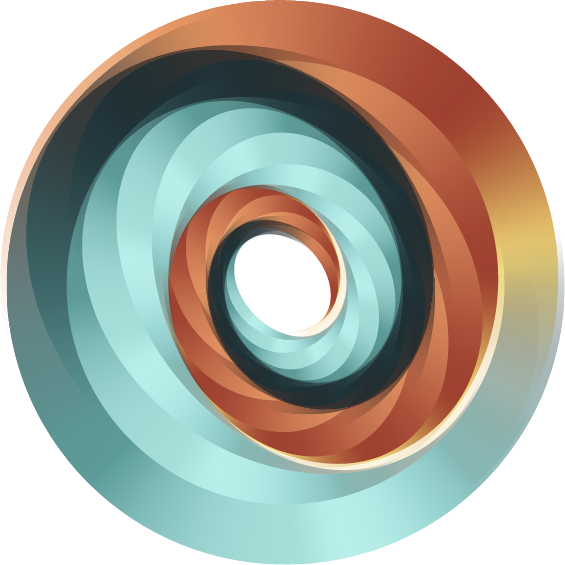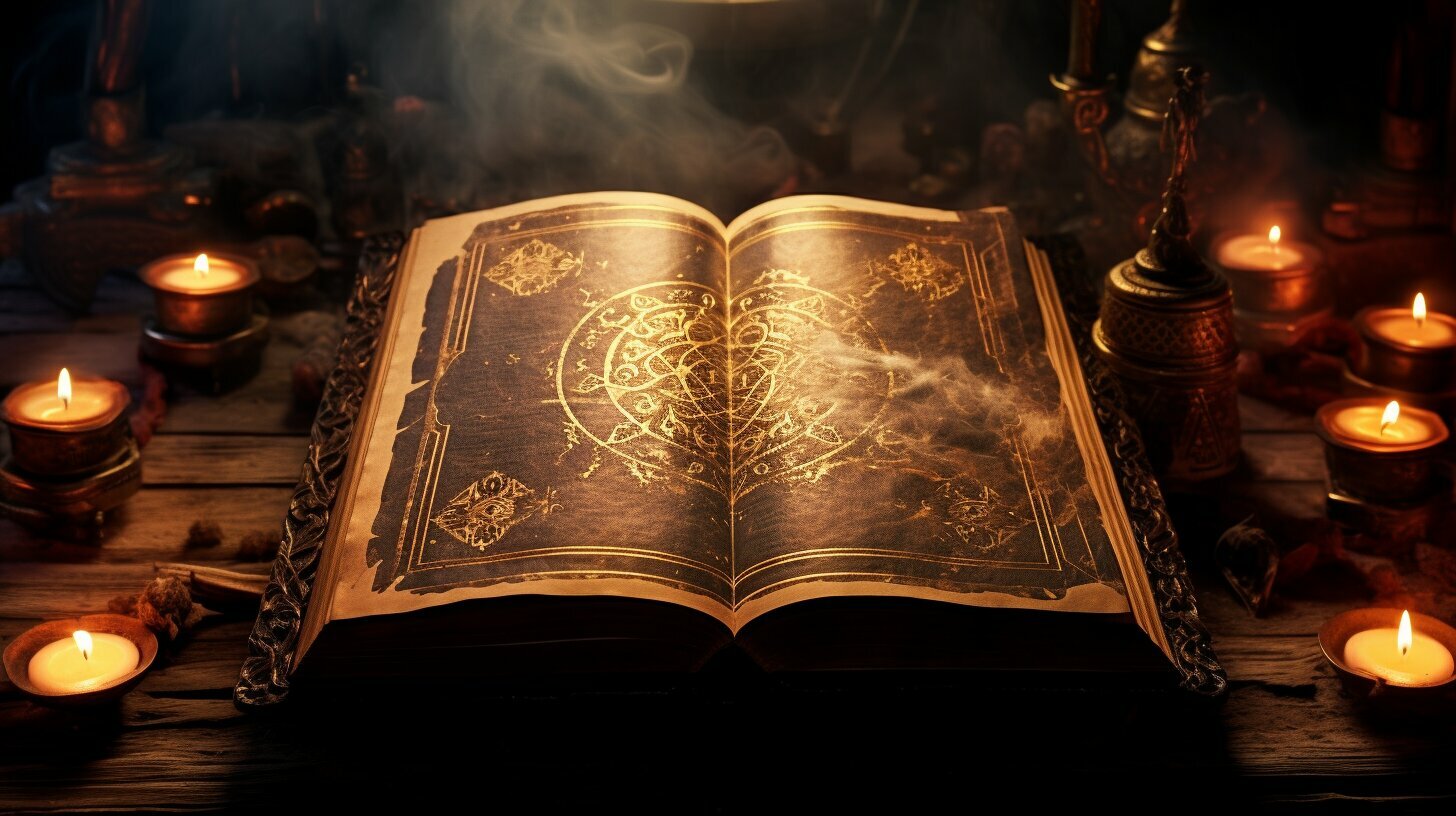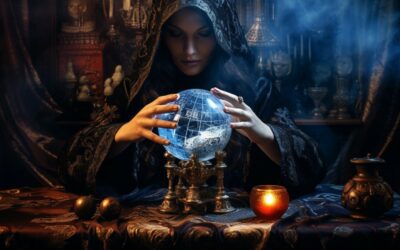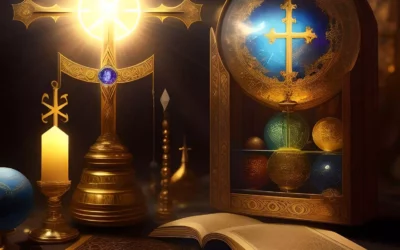As a fan of unknown technologies, I am often asked to explore the mysteries of the unknown and the unexplained. One practice that has captured my imagination and interest is divination.
What does divination mean? Simply put, divination is the act of seeking knowledge of the future or the unknown through supernatural means. It is a mystical art that has been practiced for centuries across various cultures and regions of the world.
Key Takeaways:
- Divination is the practice of seeking knowledge of the future or the unknown through supernatural means.
- It is a mystical art that has been practiced for centuries across various cultures and regions of the world.
Origins and History of Divination
Divination has a rich history spanning across different cultures and time periods. The practice of seeking divinatory guidance from the spiritual realm dates back to ancient times, where it was believed that the gods could communicate their will through various methods of divination. In this section, I will delve deeper into the origins and historical background of divination.
The Ancient World
Divination played a significant role in ancient societies, where it was seen as a means of communicating with the divine. For example, the ancient Greeks consulted the Oracle of Delphi, where the Pythia priestess delivered cryptic messages from the god Apollo. The ancient Egyptians also practiced divination, often interpreting dreams and using oracles to make important decisions.
Throughout history, divination practices have been adapted and adopted by many different cultures, including the Chinese, Maya, and Inca civilizations. These practices reflect diverse beliefs and values, highlighting the unique ways in which people seek guidance from the spiritual realm.
Divination in the Middle Ages
In the Middle Ages, divination took on new forms as Christianity spread across Europe. While divination was often viewed as a pagan practice and therefore discouraged by the Church, many Christian leaders practiced divination themselves in the form of reading the Bible or interpreting signs and omens.
During the Renaissance, divination became even more popular, as people sought to understand the natural world using mystical methods. The works of renowned philosophers such as Marsilio Ficino and Giovanni Pico della Mirandola explored the connection between divination and the human spirit.
Divination Today
Today, divination practices continue to evolve and adapt to modern times. While traditional practices such as tarot reading and astrology remain popular, new forms of divination have emerged, including angel card reading and crystal divination. Additionally, many people have developed their own unique methods of divination, reflecting their personal beliefs and spiritual practices.
The history of divination is a fascinating journey through different times and cultures. Understanding the origins and development of divination can provide insight into the role that this mystical practice continues to play in our lives today.
Exploring Different Types of Divination
Divination is a practice that takes many forms, with each method offering unique insights and guidance. From tarot cards to I-Ching, let’s explore some of the most popular types of divination:
1. Tarot Reading
Tarot cards are one of the most well-known and popular forms of divination. A tarot reader will interpret the symbolism of the cards, which can be used to gain insight and guidance on a wide variety of topics, such as love, career, and personal growth.
2. Astrology
Astrology is the study of the movements and relative positions of celestial bodies. An astrologer will use birth charts and planetary alignments to provide insight into an individual’s personality, strengths, and challenges.
3. Runes
Runes are symbols that were used in ancient Germanic and Nordic cultures for divination. A runic reader will draw a set of stones or tiles, each inscribed with a rune, and interpret the meaning of the symbols as they relate to the question asked.
4. I-Ching
The I-Ching is an ancient Chinese divination system that uses hexagrams to provide insight and guidance. A practitioner will cast coins or sticks to create a hexagram, which is then interpreted to provide insights on a particular situation or question.
5. Scrying
Scrying is a divination method that involves gazing into a reflective surface, such as a crystal ball or mirror, and interpreting the images that appear. It is thought to be a powerful tool for gaining insight into the subconscious mind.
6. Numerology
Numerology is the study of numbers and their meanings. A numerologist will use an individual’s birth date and name to identify their life path number and provide insights into their personality, strengths, and challenges.
These are just a few examples of the many types of divination. Each method has its own unique way of providing insight and guidance to those who seek it.
Divination Methods and Techniques
Divination involves various methods and techniques that help practitioners gain insights into the unknown. These include tools, rituals, and procedures that are unique to each practice.
The Tarot Cards
The Tarot is a popular divination tool that originated in medieval Europe. It consists of a set of 78 cards, each with its own unique artwork and symbolism. Tarot readers use these cards to gain insights into a person’s past, present, and future. The cards are typically spread out on a table and the reader interprets their meanings based on their placement and the individual cards’ symbolism.
Astrology
Astrology is the divinatory practice of interpreting celestial bodies’ movements and their influence on human affairs. A practitioner of astrology will typically use a person’s birth chart to understand the position of the sun, moon, and planets at the time of their birth. This information is then used to provide insights into the person’s character, personality, and future.
Runes
Runes are ancient Germanic symbols that were used for divination and communication. They are typically made from wood or stone and have their own unique meanings and interpretations. A rune reader will typically cast a set of runes onto a cloth, and then interpret their meanings based on the pattern they form and their individual symbolism.
Scrying
Scrying is a technique that involves gazing into a reflective surface, such as a crystal ball or a mirror, in order to gain insights into the unknown. A practitioner of scrying will typically focus their gaze on the surface and allow their mind to become receptive to any images or symbols that may appear.
Numerology
Numerology is the divinatory practice of interpreting numbers and their meanings. A practitioner of numerology will typically use a person’s name or birthdate to generate a numerical value, which is then used to provide insights into their character and future. Each number has its own unique meaning and interpretation.
Divination Tools and Rituals
Divination also involves various tools and rituals that are unique to each practice. For example, a Tarot reader may use a specific incense or prayer before starting a reading. A practitioner of astrology may use specific charts or diagrams to understand a person’s birth chart. These tools and rituals help to create a sacred space for divination and allow for a more focused and meaningful experience.
Symbols and Interpretations in Divination
Symbolism plays a critical role in most divination practices. Tarot cards, for instance, have long used symbols to represent various concepts and ideas. The interpretation of such symbols is what provides insight into an individual’s life or situation.
For example, the Death card in tarot is often interpreted to mean an end to something, such as a relationship or a job. However, contrary to popular belief, it rarely refers to actual death.
Similarly, in astrology, the positioning of planets and stars is considered to have symbolic meaning. For instance, the placement of the sun and the moon in a person’s birth chart can reveal information about their personality and life path.
Moreover, in some divination practices, specific objects, colors, or animals can serve as symbols. For instance, an owl might symbolize wisdom and intuition, while the color red can symbolize passion or danger.
It is important to note that the interpretation of symbols is not always straightforward and can vary depending on the practitioner’s experience and intuition.
In some cases, symbols may also have different interpretations based on the context of the reading or the specific question being asked. It is the job of the diviner to use their intuition and knowledge to accurately decipher the meaning behind the symbols they encounter.
Divination in Different Cultures
Divination practices vary across cultures. There is no one-size-fits-all approach to divination, and different cultures have adopted unique techniques to seek guidance from the divine. Here, I will explore some of the most popular divination practices from around the world.
China
Divination in China has a long history dating back to the Shang Dynasty in 1700 BCE. One of the most popular forms of divination in China is the I Ching, or Book of Changes. This ancient text is consulted through the use of yarrow sticks or coins to provide interpretations of different situations and decisions.
India
Divination has been an integral part of Indian culture for centuries. One of the most popular forms of divination in India is astrology, which is based on the positions of celestial bodies at the time of a person’s birth. Astrology is used to predict future events, assess personality traits, and provide guidance on important life decisions.
Africa
Divination practices in Africa vary widely depending on the region, with each culture adopting unique techniques. One of the most popular forms of divination in Africa is the use of bones, shells, and other spiritual objects to communicate with ancestors and guide decision-making. Diviners, or spiritual leaders, are highly respected members of African societies and play an important role in maintaining traditional beliefs and cultural practices.
Americas
Native American cultures have a rich tradition of divination practices, including the use of dreamcatchers, medicine wheels, and vision quests. These practices are deeply connected to the natural world and involve seeking guidance and understanding from the spirits of animals and nature.
Overall, divination practices are deeply rooted in cultural beliefs and traditions. By exploring the diverse practices of divination from around the world, we can gain a deeper appreciation for the ways in which different cultures seek guidance and connection to the divine.
Contemporary Applications of Divination
While divination may seem like an ancient practice reserved for mystical purposes, it has also found its place in modern-day society. People turn to divination as a tool for guidance, decision-making, and spiritual growth. Here are some examples of contemporary applications of divination:
- Tarot card readings: Tarot readings are a popular form of divination that people turn to for insight on their personal lives, relationships, and career paths.
- Astrology: Astrology uses the position of celestial bodies to provide guidance on everything from daily life to major life events.
- Runes: Runes are an ancient form of divination that involve casting stones or drawing symbols to gain insight into a situation or question.
Divination can also be used in more practical applications, such as:
- Business decisions: Divination methods such as the I Ching can be used to make business decisions or evaluate potential investments.
- Medical guidance: Some people turn to divination for guidance on health issues or to supplement medical advice.
- Relationship advice: Divination can be used to gain insight and guidance on personal relationships and romantic partnerships.
Regardless of the context, the use of divination in contemporary society highlights the continued relevance and appeal of this ancient practice.
The Role of Divination in Today’s Society
Divination has become increasingly popular in today’s society, as people seek guidance and insight in an uncertain world. Many turn to divination as a way to gain clarity and direction in their personal lives, as well as to make important decisions in business and other areas.
While some may view divination as superstitious or unscientific, its role in modern society cannot be denied. As we face complex challenges and navigate through an ever-changing landscape, divination offers a unique perspective and a means of tapping into our intuition and inner wisdom.
Through divination, we can gain a deeper understanding of ourselves and our place in the world, as well as connect with the unseen forces that shape our lives. Whether we turn to tarot cards, astrology, or other divinatory methods, the insights and guidance we receive can be invaluable in helping us navigate through life’s ups and downs.
Divination can also play a role in promoting personal growth and spiritual development. By exploring our inner selves and tapping into our intuition, we can gain a greater sense of purpose and direction in life. We can also develop a deeper connection to the world around us and a greater appreciation for the mysteries that lie beyond our understanding.
In short, divination has become an important tool for many in today’s society, providing a means of seeking guidance, gaining insight, and connecting with something larger than ourselves. As we continue to face new challenges and navigate through uncertain times, the role of divination is likely to become even more significant in helping us find our way.
Conclusion
Throughout this article, I have explored the mystical art of divination, from its meaning and origins to the various types of practices and techniques used. We have seen how symbols and interpretations play a significant role in divination, and how different cultures have their own unique traditions and beliefs surrounding this practice.
Divination is not just a relic of ancient times, but continues to be utilized in contemporary contexts, providing guidance and insight for those seeking direction in an uncertain world.
While some may view divination as nothing more than superstition, its significance and impact cannot be denied. As we have seen, divination has been a part of human history for centuries, evolving and adapting over time to meet the needs of different societies and cultures.
Whether used for personal growth or decision-making, divination remains a powerful tool for those seeking meaning and direction in their lives.
As we conclude this exploration of divination, it is clear that this mystical art will continue to intrigue and fascinate people for generations to come.
FAQ
Q: What does divination mean?
A: Divination refers to the practice of seeking knowledge or insight into the future or the unknown through supernatural means or mystical techniques.
Q: What is the history of divination?
A: Divination has a rich historical background and can be traced back to ancient civilizations such as the Egyptians, Greeks, and Romans. It has been practiced in various forms across different cultures throughout history.
Q: What are the different types of divination?
A: There are numerous types of divination, including tarot reading, astrology, palmistry, runes, numerology, and scrying, just to name a few. Each type has its own unique methods and interpretations.
Q: What methods and techniques are used in divination?
A: Divination methods and techniques can vary depending on the specific practice. They may involve the use of special tools such as tarot cards, crystals, or pendulums, as well as rituals, meditation, and intuitive abilities.
Q: What role do symbols play in divination?
A: Symbols are integral to the practice of divination. They carry deep meanings and can be interpreted in different ways to provide insight and guidance. Symbols can be found in cards, letters, numbers, or natural elements.
Q: How is divination practiced in different cultures?
A: Divination practices differ across cultures and can be influenced by cultural beliefs, traditions, and rituals. For example, Chinese culture has practices such as I Ching, while African cultures often utilize methods such as reading bones or shells.
Q: How is divination applied in contemporary settings?
A: In modern times, divination is used in various ways. Some people seek divination for personal guidance and decision-making, while others utilize it for spiritual growth and self-reflection. It can be found in wellness practices and in professional fields like life coaching.
Q: What is the role of divination in today’s society?
A: Divination serves as a tool for individuals to gain insight, find solace, and navigate the uncertainties of life. It provides a means of connecting with the spiritual realm and gaining a deeper understanding of oneself and the world.




